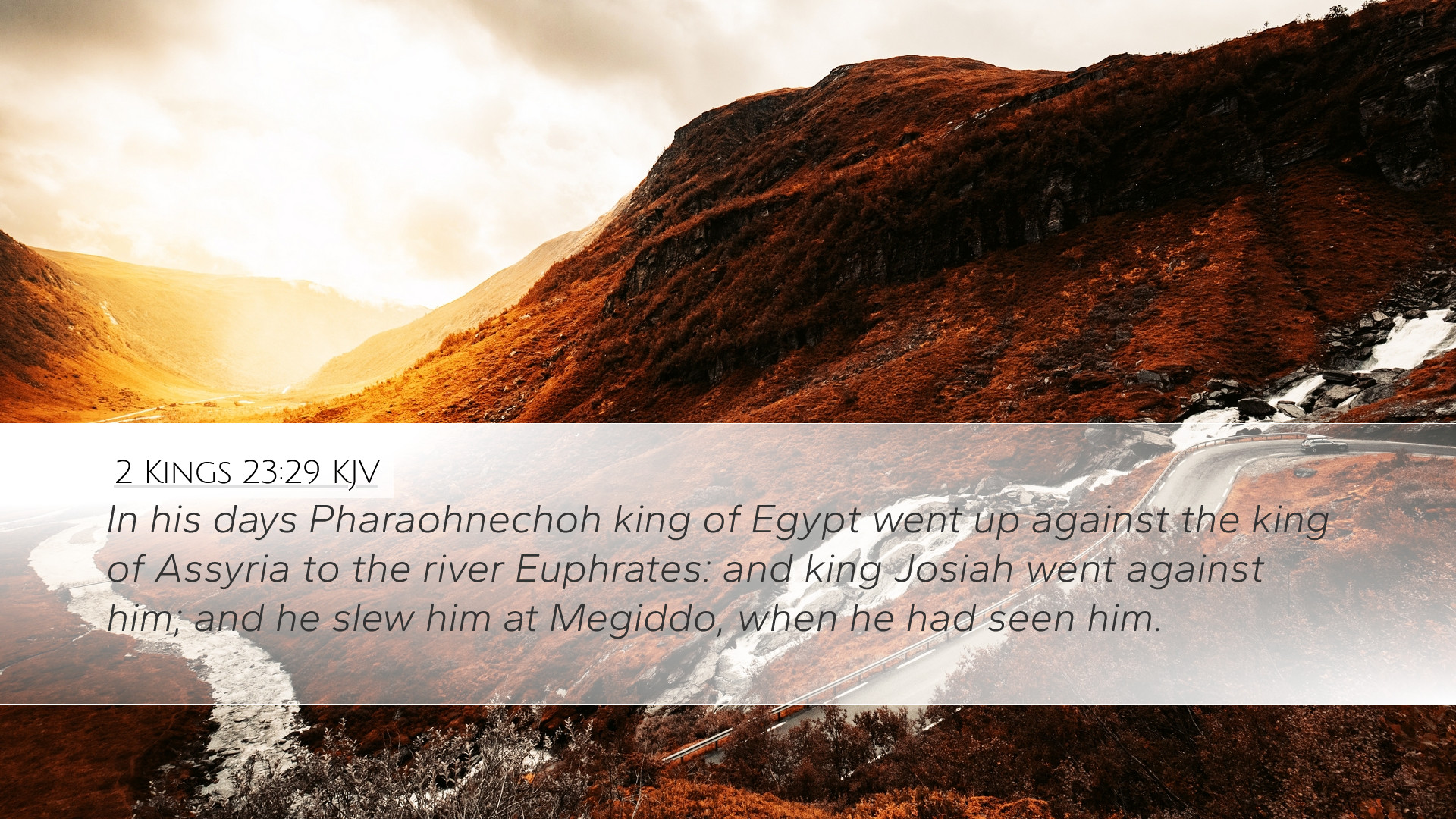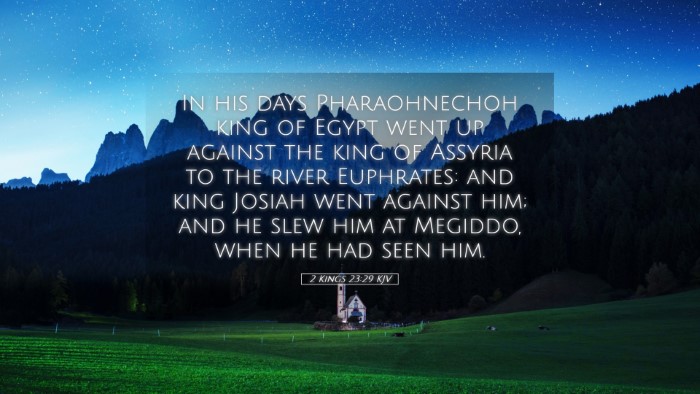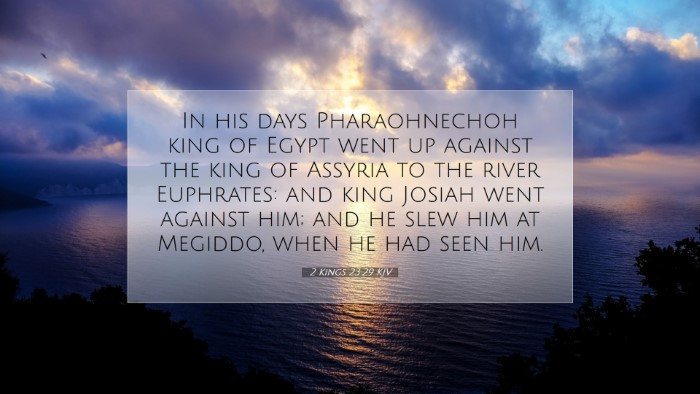Commentary on 2 Kings 23:29
Verse Reference: 2 Kings 23:29 - "In his days Pharaoh Necho king of Egypt went up against the king of Assyria to the river Euphrates: and King Josiah went against him; and he slew him at Megiddo, when he had seen him."
Introduction
This verse highlights a pivotal moment in the reign of King Josiah, a king known for his religious reforms and a sincere attempt to lead Israel back to Yahweh. The narrative not only serves as a historical account of Josiah's confrontation with Pharaoh Necho but also acts as a rich source of theological and moral insights that resonate with contemporary faith practice.
The Historical Context
The Political Climate: At this time, the geopolitical landscape was characterized by the decline of Assyria and the rise of Babylon. Pharaoh Necho, aware of the shifts in power, sought to reaffirm Egypt's influence by engaging in military campaigns against Assyria. Josiah’s decision to confront Necho reveals both his bravery and his commitment to the fate of Judah.
The conflict at Megiddo marks a significant turning point in the history of Israel, intertwining the destinies of Judah and the surrounding nations. The involvement of Josiah indicates his desire to protect his nation, yet this encounter ultimately leads to his untimely death.
Commentary Insights
Matthew Henry's Commentary
Matthew Henry provides a detailed reflection on Josiah’s character, emphasizing that despite his righteousness and reforms, he overstepped divine boundaries by confronting Pharaoh Necho. Henry remarks, "Josiah's zeal was commendable, but it was misdirected when he sought to intervene in the conflict of nations unchecked by the counsel of God."
Josiah's actions are seen as a warning against taking well-intentioned steps that lack divine endorsement. His confrontation with Necho serves as a profound reminder of the need for wisdom and guidance, as even faithful individuals can err when they act independently of God’s will.
Albert Barnes' Notes
Albert Barnes sheds light on the implications of Josiah's military engagement. He points out that King Josiah's assertion in this conflict reflects a fervent desire to safeguard his kingdom and uphold the covenant with God. Barnes writes, "In the fervor of his love for the Lord, Josiah misjudged the situation and acted as a king rather than a servant of the Most High."
Barnes further elucidates on the fatal consequence of Josiah’s intervention, noting that he fell at Megiddo, where his reign came to an abrupt end, thus fulfilling the prophetic warnings related to the consequences of his actions. This underscores a critical theological theme: the complexity of divine providence amidst human choices.
Adam Clarke's Commentary
In his analysis, Adam Clarke offers a discernible connection between Josiah's death and the larger narrative of Israel's disobedience leading to judgment. He notes, "It was a significant moment; the good king fell for what could be seen as an unwise action, illustrating that even the best leaders are susceptible to rash decisions."
Clarke emphasizes the repercussions of such choices and highlights a theological paradox: “Josiah's commitment to the covenant did not exempt him from the realities of political conflict and its mortal dangers.” The fall of Josiah is a crucial lesson about the intertwining of faithfulness to God and the perils inherent in human governance.
Theological Reflections
The narrative of 2 Kings 23:29 calls for deeper reflection on the role of leadership within the community of faith. There are several thematic elements we can distill for contemporary application:
- The Danger of Zeal without Counsel: Josiah's passionate commitment to God and his nation led him into a conflict that was not sanctioned by the Lord. This cautions against the impulsiveness that can accompany good intentions.
- The Sovereignty of God: The events surrounding Josiah’s death illustrate the sovereign rule of God over nations and history. Even seemingly tragic outcomes serve His overarching purpose in redemptive history.
- Legacy of Leadership: Josiah’s life and death remind us of the burden and responsibility of leaders to seek God’s guidance diligently. Their actions affect not only their fate but also the generations that follow.
Conclusion
The account of King Josiah's encounter with Pharaoh Necho at Megiddo serves as a rich theological and historical tapestry that offers valuable insights for contemporary believers. The interplay of faith, leadership, and the consequences of choices stands central to understanding this episode. Scholars, students, and pastors alike are encouraged to meditate upon the complexities of divine guidance, the necessity of seeking God in decision-making, and the nuances of righteous leadership as illustrated in this biblical narrative.


